Wire Politics
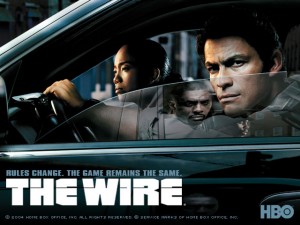 Jonah Goldberg argues that conservatives should have embraced “The Wire” more than we did.
Jonah Goldberg argues that conservatives should have embraced “The Wire” more than we did.
This is a Democratic city, run almost uniformly by liberals. While many of the problems most prominently on display can certainly be traced back to racism, racism itself is not a central issue in The Wire (nor is racism an inherently or historically conservative phenomena). These drug gangs and the poor souls in their orbit, are not trapped by racism so much as by a dysfunctional culture. That’s certainly the lesson of much of season four. The stoop kids do okay. The Corner Boys are destined for a life of misery. For every main character who is a murderer or dope dealer (but I repeat myself), there’s a representative of the black middle class who rejects the criminal culture of the street. For every Marlo, there’s a Bunk. Race relations between the actual characters are remarkably healthy, and nearly every mention of race as a salient issue is in the context of the political nonsense inherent to Baltimore, or rather urban, Democratic politics. To the extent many liberals try to explain all of the problems of poor blacks on racism, the show was a powerful rebuttal.
Some liberals (including some of the show’s creators) might look at the manifest failures of the schools in The Wire as evidence that we don’t “invest” enough in urban education, which is itself a symptom of racism. Okay, fine. But as a conservative, I don’t look at the schools in the Wire and say, “gosh, if only they had more money.”
Alex Massie, sensibly I believe, wonders, “have we really reached the stage where even TV programmes have to be apportioned between conservatives and liberals so that watching television becomes a dreary act by which one demonstrates ones political allegiance?” Nonetheless, he wades in fearlessly:
In any case, if you have to investigate The Wire’s politics, it seems to me that you might be tempted to conclude that it endorses a libertarian view of local politics, rather than conservative or liberal perspective. No wonder it’s such a trendy show to like… The evidence is there: manifest failure of a crippling and immoral war on drugs? Check. Manifest failure of a school system resistant to reform and implicitly ripe, therefore, for real school choice? Check. Desperate consequences of the criminalisation of prostitution? For sure. Ghastly consequences of local government and planning regulations held hostage by rent-seeking?
Which just goes to show that programs with a heavy dose of social drama can be read in ways that conform to one’s own preexisting ideological bent. In any event, we should refrain from drawing too many political lessons from fictional television shows, however “realistic” they seem.

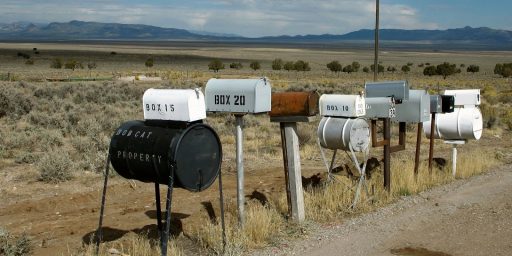
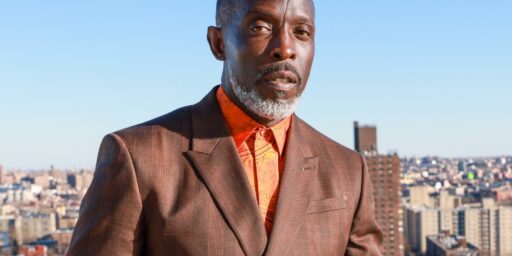
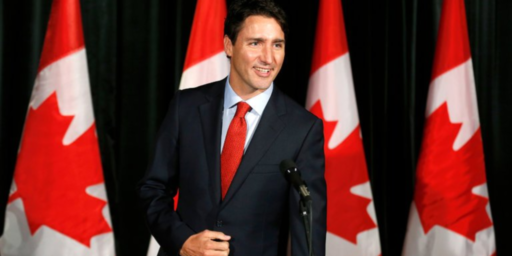

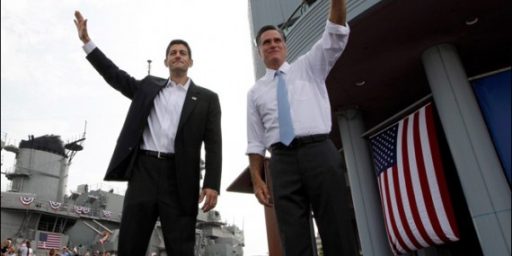
Without passing judgemnt on the show itself, I will say that given the unrelenting left-lean coming out of Hollywood, likely because causal to at least some of the left-leaning in the general public, one wonders what affect this show would have.
I think The Wire may be one of the best things ever developed for TV, disregarding the “It’s not TV, it’s HBO” marketing. Like Mr. Massie, my eyes roll at the NRO habit of viewing entertainment through the prism of ideological leanings. Look up their review of WALL-E for instance to see this at its worst.
Mr. Goldberg oversimplifies the morals of The Wire, but it is hard not to because it is so complex and multi-threaded with many threads interweaving and mirrored in obvious and non-obvious ways. David Simon was actually fairly explicit in interviews about his desire to deliver a political message, and it wasn’t a Libertarian message. Not necessarily a Democratic message either, but certainly a Progressive one.
Anyway, Mr. Goldberg isn’t right about the stoop kids and the corner kids. Randy was certainly a stoop kid who lost badly. Really badly. Namond was a corner kid who couldn’t cut it and was turned into a stoop kid, but only through a near miraculous intervention. And Duquan was never a corner kid, but, sadly, he never had a stoop to be on when it got dark, so he lost badly too.
I was able to enjoy The Wire, as I enjoy most entertainment that doesn’t beat me over the head with whatever message it wishes to spread, without really paying any attention to said message. It’s something I’ve long since grown accustomed to. Heck, my favourite band is r.e.m. and I can enjoy them just fine without concerning myself in the slightest with their ridiculous politics.
I gather that the creator thinks that The Wire is a diatribe against “unencumbered capitalism” (which I further gather is supposed to mean ‘raw capitalism without a social contract’). That strikes me as a monumentally insipid message, since no such thing has ever existed, nor will ever exist (the “raw capitalism” of The Game in the show isn’t capitalism, it’s a caricature of capitalism drawn by someone who doesn’t understand what he’s caricaturing. The Game only exists because of the government fiat that makes drugs illegal and even in the shadow market that said criminality creates there’s some sort of a social contract; the players don’t live by the same rules that govern the well-lit capitalism of acceptable society, but they do have rules).
So I’m glad I had no idea that was what he thought he was peddling until just now. One of the many things that makes The Wire good is that that nonsense isn’t necessary to the plot. There are two plot arcs that are borderline outrageous (Bunny Colvin’s ‘experiment’ in S3 and McNulty’s faking a serial killer in S5), but only because they strain one’s capacity to suspend disblief. So, while dubious creative decisions might sometimes interfere with the storytelling, the sending of political messages rarely does.
Never seen it (don’t have tv) but with all these recommendations, maybe I should order it over netflix?
That’s how my wife and I saw it. I thought it was well worth it, although it went downhill after the first couple seasons.